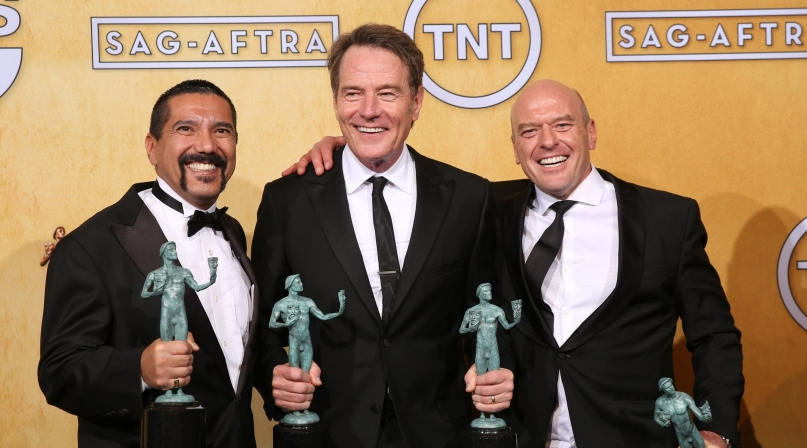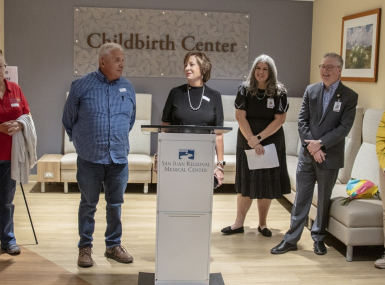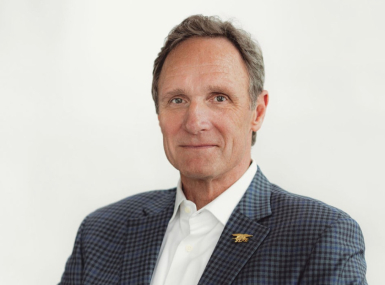‘Breaking Bad’ actor’s role of a lifetime: County commissioner

Key Takeaways
Steven Michael Quezada is what performers call a quadruple threat — he’s an actor, a writer, a producer... and an elected official. The string that ties all of them together? Bernalillo County, N.M.
“My family goes back 700 years here,” Quezada said. “I’m mostly Native American, my bloodline is 23 percent Spanish — this is where our land is, these are our people and now in 2023, they’re all our people. No matter where you came from, if you just moved here yesterday or if your family has been here as long as my family has, we’re family now. I tell people, ‘You’re a Mexican now, you’re just a ‘new’ one, a New Mexican now,’” he said with a laugh, referencing the title of his 2022 stand-up comedy special.
Quezada never planned to go into government but has always been involved in the community — from working with a gang intervention program in his 20s to becoming the president of the governing council at his children’s charter school.
Learn more
“If you want your community to be successful and succeed, the best way for that to happen is for you to be involved, so I took that step,” Quezada said. “… When you start, you realize that you’re always trying to chase down the funding, and funding comes from elected officials, so you get involved by first supporting people who are running for office who believe in the work that you’re doing.
“And I kind of warned all of them that if it got to a point where I felt that they weren’t funding the programs that were important to the kids and my community, that I would run.”
Quezada followed through on that “warning,” and was elected to the Albuquerque Board of Education in 2013 and has represented the county as a commissioner since 2016.
“My oldest brother, who passed away at 34 because he was born with a hole in his heart, he was supposed to be the politician,” Quezada said. “He was this brilliant mind — unfortunately, his health didn’t allow him to live that long, but what he did do in his 34 years was pretty amazing … and I think that’s where I got the desire to help the community, through his lens and the way he looks at the world.
“… I just want to make sure that we have the highest quality of life here that we possibly can have, and that comes through government, that stems through policy, through programs that we fund and create, through infrastructure that attracts businesses, from corporations to small businesses — we need them all here.”
Quezada, who has long advocated for more Mexican-American representation in politics, emphasizes the importance of representation in government, particularly on topics like immigration.
“I think that when either you or your family has lived through it, you bring a different perspective,” Quezada said. “… To govern, to me, is you’re trying to help the most amount of people, and a lot of times I think we make decisions based on a minority of people.
“So, immigration — of the people that come here, we punish 100 percent based on the actions of 3 percent,” he said. “Those 3 percent, they come here, and they abuse the opportunities that we’re giving them. Those guys I want to catch, but to punish the other 97 percent that actually come here and create opportunities — not only for themselves, but for the people around them and their children?
“… We’re making policies to punish them instead of really fixing the system to make them a part of our system.”
Hispanic or Latinos make up nearly 20 percent of the U.S. population; less than 8 percent of county commissioners are Hispanic or Latino. It was a lack of Latino roles in theater that led Quezada to fall into his decades-spanning comedy career, which would eventually land him his Screen Actors Guild-award winning role of Drug Enforcement Administration agent Steve Gomez in “Breaking Bad.”
Quezada studied Shakespeare in college — even taking on the titular role in Eastern New Mexico University’s performance of Richard III — but it soon became clear to him that pursuing theater as a person of color in the 1980s wouldn’t be easy.
“I came back here to Albuquerque, and when I auditioned, the people that were doing Shakespeare here, they wouldn’t cast me because I was a Mexican,” Quezada said. “And they said, ‘Well, you’re a Mexican, I don’t know why you’re doing Shakespeare.’ So, that bummed me out.”
Quezada then worked at a bilingual community theater, building sets, and wrote his own plays in his free time — ones that created space for people who looked like him. Following the success of his comedy “The First Chicano President,” he was approached to do stand-up.
“I told him to get away from me, that he was crazy, because I would never ever be a stand-up comic,” Quezada said. “But after a couple of years of starving, I was like, ‘Well, I’ll have to look at that again, just to see what that’s all about,’ and I fell in love with it — it was the hardest thing I’ve ever done.”
Over 30 years later, Quezada has established a successful career for himself in comedy.
It was his comedy background that helped him land “Breaking Bad,” as Vince Gilligan, the show’s head writer and director, wanted to use the characters of Gomez and his DEA partner, Hank, played by Dean Norris, as comic relief in the beginning of the “crazy drama,” he said.
Through all of the success of “Breaking Bad” — it was named the most critically acclaimed television show of all time by Guinness World Records — it was the praise of his Latino peers in media that meant the most to Quezada, he said.
“I remember the day George Lopez called me — he said, ‘I’m so extremely proud of you, and I’m proud that in this crazy show of a bunch of bad people … you get to play the actual by-the-book good guy, because Latinos don’t normally see that, not in that drug, gang kind of setting.’”
“I was very excited, like ‘Look it’s the SAG award!” Quezada said. “[My wife] goes, ‘Yeah, does that take out the trash though?’ I went ‘No,’ put it down and took out the trash.”
From his time on set, Quezada has kept some souvenirs — beakers, pillows, shirts from Gomie’s wardrobe (one of which he donated to a non-profit, the remaining two he said he intends to donate, as well).
“My wife and I when we went to all of the premiere parties in L.A., they would be all decorated with ‘Breaking Bad’ stuff and we would snag that at the end of the night, so we knew we could use that to also raise money for non-profits,” Quezada said.
Seven years after the show’s final season, Quezada reprised his role as Gomie for two episodes of its hit spin-off, “Better Call Saul.” He said his favorite part about returning to the “Breaking Bad” universe was getting to act once again alongside his former co-star and close friend Dean Norris.
“I love Dean with all my heart, so to be able to go back and do work with him was special for both of us,” Quezada said.
“We really care for each other a lot, we’re always still in contact. We’ll call each other just to give each other grief because we miss it, but it was great to play Hank and Gomez at the beginning, before all the drama happened to them, because at the beginning, we were like the comic relief, and it was fun to do that again.”
Quezada has described “Breaking Bad’s” location (Bernallilo County) as a character of its own on the show. It’s that admiration for the county and its residents that keeps him devoted as an elected official — even if the politics of the job can be “brutal,” he said.
“I like this level of government work and politics because the county commission is where the rubber meets the road,” Quezada said. “We’re the ones who actually get the work done; we make sure that the funding is spent and that it’s done to the best of our ability.
“I’m a compromiser, and I know that ‘compromise’ is a new bad word on the national level, but I think that’s the beginning of us losing our way. This is the thing that I’ve always said since I started running for office — I’m like, ‘Hey, look, if I put something forward and it doesn’t work, I don’t have a problem bringing it back and fixing it.’ There’s a reason why we write everything down on paper, and that we don’t chisel it in stone anymore.”
Juggling his work as an elected official with stand-up sets and acting auditions results in the hectic schedule of most people’s nightmares — he’s just come off a night performing five shows followed by an early morning meeting with the county manager — but Quezada wouldn’t have it any other way, he said.
“That’s what I do — that’s who I am at the end of the day,” Quezada said.
“But everybody has a job. I know that mine’s unique to this type of community service … but it’s rare that you have somebody who’s retired [as a commissioner], and it seems like the ones who are retired are the ones who need a term limit,” he said, with a laugh. “That’s what I love about county government though; I think counties got it right.
“You’ve got eight years, do it, knock yourself out and then when you’re done, somebody else gets to.”
Attachments
Related News

Now I know I can adapt my communication style
San Juan County, N.M. Commissioner Terri Fortner spent her career working with people one-on-one, but she overcame hangups about online communication when the pandemic forced her onto video calls when she first took office.

County service meets a veteran’s need for purpose in Spotsylvania County, Virginia
After Drew Mullins transitioned from a high-performance lifestyle in the military, he found the environment and purpose he sought when he took office in his county.
Now I know that solid waste is complicated
Custer County, Idaho Commissioner Will Naillon says solid waste removal is "one of the things that people often take for granted until it’s their job to make sure it happens... that’s the story of being a county commissioner."
